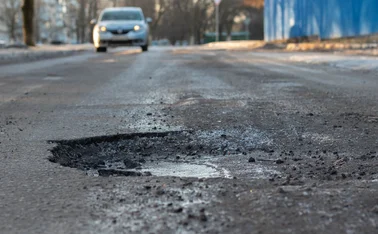
Local coronavirus cases did not cause national lockdown, BI insurers tell Supreme Court

The Supreme Court heard arguments from lawyers representing QBE, Argenta and MS Amlin on Monday as insurers began their appeal of the September judgment handed down in the Financial Conduct Authority’s business interruption test case.
The Supreme Court appeal is slated to run for four days this week and is being heard by Lords Reed, Hodge, Briggs, Hamblen and Leggatt.
All three insurers on Monday contended that, while their wordings provide cover for occurrences of notifiable diseases within a 25-mile radius of the insured premises, such cases could not be said to be the cause of business interruption losses suffered as a result of government lockdown measures.
QBE
Beginning Monday’s proceedings, Michael Crane QC laid out QBE’s appeal with regard to the QBE1 wording, which contains a disease clause that the High Court found provided cover.
At the heart of QBE’s appeal is the wording’s stipulation that the disease causing the interruption being indemnified be “manifested by any person whilst in the premises or within a 25-mile radius of it.”
Crane disputed the High Court’s reading of this clause, saying: “The divisional court opted for a construction that removed any causative relevance from a manifestation of disease within the specified area. That’s my core complaint.
“It concluded that the insured peril was the notifiable disease at large and that cover under the QBE1 disease clause was triggered if and when there was a single manifestation of disease within the defined area.”
Putting forward QBE’s reading of the part of the clause in question, Crane said it described an “event”, which is to say “something observable, which happens at a particular time, in a particular place, in a particular way.”
Adding: “The event from which the business interruption must arise is the manifestation of a notifiable disease by someone whilst in the premises or within 25 miles of it.”
Crane argued that the High Court’s judgment strayed from this “natural reading” and treated the clause instead as “a supplement to the description of the disease.”
He highlighted a part of the High Court’s declarations with regard to QBE1, which state that “it is not necessary for the interruption of or interference with the insured business to have been caused by the manifestation of Covid-19 within the 25-mile radius, as distinct from its manifestation outside the radius.”
This, he argued, gave rise to a legal fiction. “On the court’s construction, it doesn’t matter whether the first local manifestation precedes or follows the measures that caused the damage,” he said.
“Where the first local case follows, the fiction is that somehow the local case operates as a concurrent cause of the continuing loss. That cannot be correct. The cause of loss is government measures, which have already had and continue to have their impact.”
QBE’s other wordings under examination in the test case, QBE2 and QBE3, were found not to provide cover, a judgment that is set to be appealed by the FCA.
Argenta
Crane was followed by Simon Salzedo QC, representing Argenta.
Salzedo said the central question concerning disease clauses in the wordings being examined by the court was whether or not the lockdown measures that caused business interruption would have still occurred if there was no occurrence of Covid-19 within the radius of an insured businesses.
He said: “It has not been shown in this test case that occurrences within the radius of any particular Argenta policyholder caused the government measures which caused most of their losses.
“That’s enough to be to establish it has not been shown that the actual words of Argenta1 are satisfied by the generality of claims for Covid-19 losses.”
MS Amlin
Salzedo was followed by Gavin Kealey QC, representing MS Amlin, who laid out the grounds of appeal of the court’s findings on the disease clauses in MS Amlin1 and 2.
A third wording written by the insurer, MS Amlin3, was deemed not to provide cover and is not being appealed in this hearing.
Kealey said that the central question for determining whether the Amlin policies provided cover was: “Did illness or illnesses sustained by any person or persons resulting from Covid-19 within 25 miles of the insured cause business interruption or interference of those premises and the business interruption losses claimed by the insured?”
He put forward his argument by analogy to a scenario put forward by Lord Leggatt, in which a bus is pushed off a cliff by a group of 20 people.
He said that in corresponding “right question” that the situation would be to ask whether the efforts of one person among that group of 20 caused the bus to go off the cliff – a question to which, he submitted, the answer was no.
“But for that person’s efforts, the bus would still have gone over the cliff,” he said.
Kealey went on to say that the insured must therefore “prove that the business interruption losses would not have been suffered, but for proved 25-mile cases of Covid-19.”
Adding: “X cannot be a cause of Y, if Y would have happened irrespective of X.”
Kealey sought to assert the need for a ‘but for’ causation test in determining cover, saying: “The court below rejected the submission that the word ‘following’ involves the application of any but for test, despite emphasising and repeating that the word involves a causal connection.”
The first day of the Supreme Court hearing concluded with the court hearing from David Turner QC, representing RSA. Turner is due to continue his submissions on Tuesday and will be followed by lawyers representing Hiscox and Arch.
Only users who have a paid subscription or are part of a corporate subscription are able to print or copy content.
To access these options, along with all other subscription benefits, please contact info@postonline.co.uk or view our subscription options here: http://subscriptions.postonline.co.uk/subscribe
You are currently unable to print this content. Please contact info@postonline.co.uk to find out more.
You are currently unable to copy this content. Please contact info@postonline.co.uk to find out more.
Copyright Infopro Digital Limited. All rights reserved.
As outlined in our terms and conditions, https://www.infopro-digital.com/terms-and-conditions/subscriptions/ (point 2.4), printing is limited to a single copy.
If you would like to purchase additional rights please email info@postonline.co.uk
Copyright Infopro Digital Limited. All rights reserved.
You may share this content using our article tools. As outlined in our terms and conditions, https://www.infopro-digital.com/terms-and-conditions/subscriptions/ (clause 2.4), an Authorised User may only make one copy of the materials for their own personal use. You must also comply with the restrictions in clause 2.5.
If you would like to purchase additional rights please email info@postonline.co.uk








